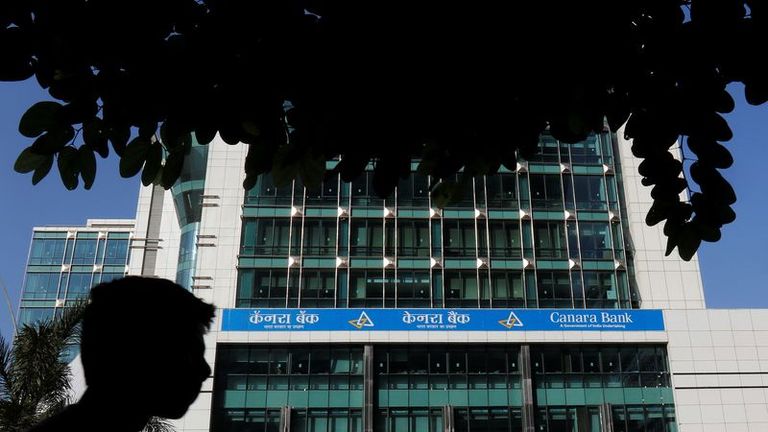MUMBAI (Reuters) - Indian banks are set to raise around 400 billion rupees ($4.79 billion) through infrastructure bonds in July and August, potentially setting a record for the second consecutive year, according to five merchant bankers on Friday.
If successful, funds raised via these bonds in the first five months of the current fiscal year started in April will surpass the 544 billion rupees raised in fiscal year 2023/24.
Infrastructure bond issues had picked up last year, and the trend will continue as the gap between credit demand and deposit growth continues, said Shameek Ray, head of debt capital markets at ICICI Securities Primary Dealership.
Government spending on infrastructure and a pick-up in investment in sectors like steel, roads and renewable energy is generating demand for funds, said Arnab Choudhury, head of debt capital markets at SBI Capital Markets.
Infrastructure bonds are issued to finance long-term development projects.
Canara Bank and Bank of Baroda are likely to raise 100 billion rupees each, while Bank of India is expected to raise 50 billion rupees, three of the bankers said.
HDFC Bank, India's biggest private bank, is also in early talks to raise around 100-150 billion rupees, they added.
None of the banks responded to Reuters' request for confirmation.
So far this fiscal year, State Bank of India has raised 200 billion rupees, and ICICI Bank has raised 30 billion rupees through these bonds.
Bank Tenor Issue period Amount (in
billion rupees)
SBI 15 years June 100
ICICI Bank 10 years June 30
SBI 15 years July 100
Bank of Baroda 10 years In advanced stage 100
Canara Bank 10 years In advanced stage 100
Bank of India 10 years In planning stage 50
HDFC Bank 10 years In planning stage 100-150
Investor appetite for long-duration infrastructure bonds could spur more issuances in the coming months, Choudhury said.
According to the interim budget announced in February, the federal government plans to spend over 11 trillion rupees this fiscal year on long-term infrastructure projects to stimulate growth and create jobs.
"These bonds are seeing strong demand from insurance companies and provident funds, as it allows them diversification and meets their need for increasing portfolio duration," Ray said.
The strong demand has also helped reduce the spread sought by investors over government securities, he added.
($1 = 83.5250 Indian rupees)
(Reporting by Dharamraj Dhutia and Bhakti Tambe; Editing by Varun H K)
By Dharamraj Dhutia and Bhakti Tambe



